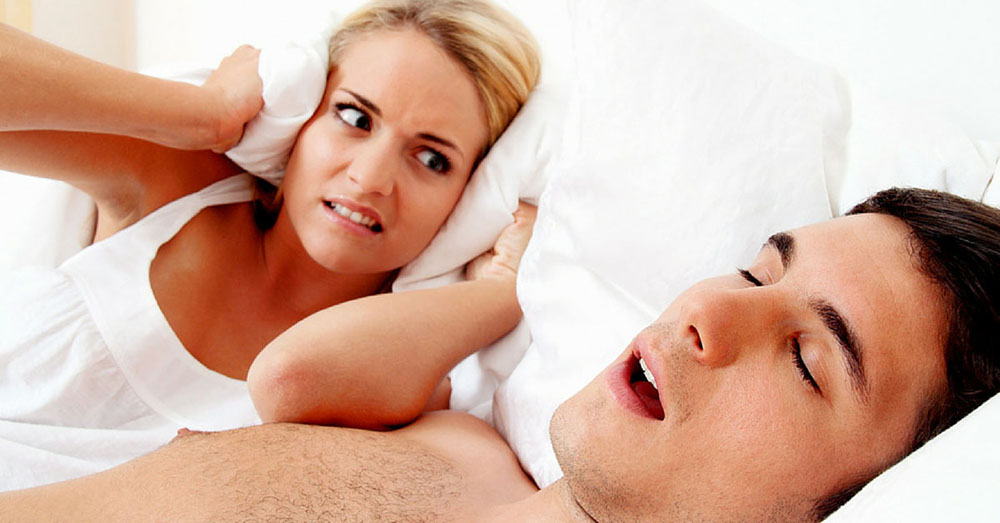
Obstructive sleep apnea is a common and often chronic sleeping condition where airways are obstructed, causing sufferers to choke in their sleep. About half of sufferers are overweight.
Men are more likely to have sleep apnea than women, but no one really knows why, because: “There’s no nationally representative data [on gender differences],” says Michael Twery, PhD, director of the National Center on Sleep Disorders Research, a division of the National Institutes of Health.
“Women suffer from insomnia at two to three times the rate that men do. Men, on the other hand, are twice as likely to have their slumber spoiled by sleep apnea, a chronic condition characterized by brief episodes of restricted breathing.”
How the Sexes Snore
However, Grace W. Pien, writing for the Sleep Foundation, believes, “that women with sleep apnea are less likely to be diagnosed compared to men. In earlier studies of patients coming in for evaluation for sleep apnea, the ratio of men to women has sometimes been extremely lopsided, with 8 or 9 men diagnosed with apnea for each woman found to have obstructive sleep apnea (OSA).
However, we know from studies in the general population that the actual ratio is likely to be closer to 2 or 3 men with OSA for each woman who has the condition.”
Sleep apnea in women is more commonly mistaken for depression, diabetes, hypertension, hypochondria, or a host of other conditions, due to the differing symptoms they experience, according to Fiona C. Baker writing for the National Sleep Foundation, “Women are more likely to present to their clinician with non-specific symptoms such as insomnia (difficulty falling asleep or staying asleep), restless legs, depression, lack of energy, and sleepiness.
“Because these symptoms are not specific for OSA, women may be misdiagnosed and are less likely to be referred to a sleep clinic for further evaluation.”
The Effects of Snoring
Regardless of your gender, if you consistently do not get enough sleep, you run the risk of additional health problems, including diabetes, depression, liver issues, and other conditions. Men have a higher risk of this than women, and men are more likely to experience them at an earlier age, but we don’t know why. Twery speculates that hormonal differences may protect women until they are older, but unfortunately this is speculation until further research is conducted.
Effective treatments include using a CPAP, a sleep mask that keeps airways open, which can be supplemented by prescription medication like trazodone.
Do You Need Snoring & Sleep Apnea Treatment in Order to Sleep Better?
If your partner has a snoring or sleep apnea treatment, it does not only affect his sleep patterns but also your sleep patterns. Getting enough sleep is vital for everyone. Without allowing your body to rest and recharge, you’re not able to properly function to your full potential during the day.
At Houston Sinus & Allergy, we assess patients for the severity of their condition, and determine a sleep apnea treatment that will allow for a restful sleep. Learn about the treatments we provide that have helped countless patients with sleep apnea, or book an assessment with our experienced ENT, Dr. Nguyen, and start sleeping well again.

